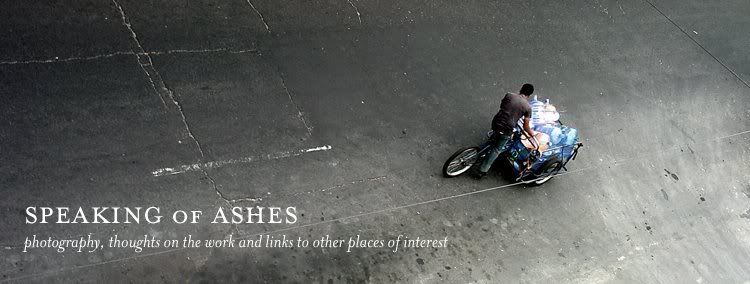concept

"conceptually coherent." Ten years ago i had a pretty good idea what this meant. I understood that work done in physics had proven that the observer did necessarily affect what s/he was observing and that no more would the straight objectivity, so-called, of the hard sciences be employed so far afield from the hard sciences.
Anthropology had ceased it's humiliating flirtation with literary arts and settled for the lesser role as a branch of hominid sciences. Fair enough, and not so humble after all.
And social sciences in the broader sense became all various branches of statistical analysis, though with much needed artful interpretation, anything too artful receiving a stern reprimand, as it should. The exception perhaps is economics, the much lawded "hardest of the soft sciences," where the Chicago school of fictional economics still reins supreme, and the results are obvious to anyone who can see with an artless eye. (45 million American citizens in artless, hopeless poverty is a successful economy, now that's art.)
But I'm talking about concept. In lieu of such a fascinating discovery, that objectivity is impossible. That observation is participation, that describing is creating, that ascribing is affecting is part of telling, one would have expected the arts to carreen off in happy, literary descriptions and re-descriptions. Every description should be understood as another self description and that the joy of painting is in what it makes of us. How the experience of a line changes not merely our miserly conception of a line, but like in literature, it affects our very thinking of another un-related and distant line. To connect these two dots, and to form a line, we are simultaneously connecting other dots of which we've no knowledge, no experience. And the physical act of painting them does also connect these dots, synapses if you like, as does, more weakly, the act of viewing.
I believe most of my colleagues consider "concept" to be something like a written statement which accompanies an art-work, much as an article accompanies a social-scientists graphs and charts. This is so bewildering and boring it makes me want to puke my lunch out. Doing statistical science requires looking at statistics, and then drawing conclusions. The expression of those conclusions requires a literary vehicle and one that is fine tuned and accurate. But it doesn't require testing the limits of what a literary vehicle can do, how we use it, how we change ourselves through using it.
Literature does that. As does any of the creative arts. To do some experimental thing, action, creation of an object or situation and then explain it through "concept" is to put the cart before the horse. In most cases, conceptual artists express and explain some sort of pseudo-experiment, or situation, or creation, through a literary vehicle. Why don't writers do this I wonder ?
Can you imagine a novelist offering up a concept to explain his novel ?
Painters and sculptors need to demolish the "conceptual" in art and move closer to writers, understanding all various media in the terms of linguistic elements, syntax, grammar, connotation. Conceptual artists need to stop mucking things up and study science if that is what they want to do. There really is not a lot of middle ground.


No comments:
Post a Comment